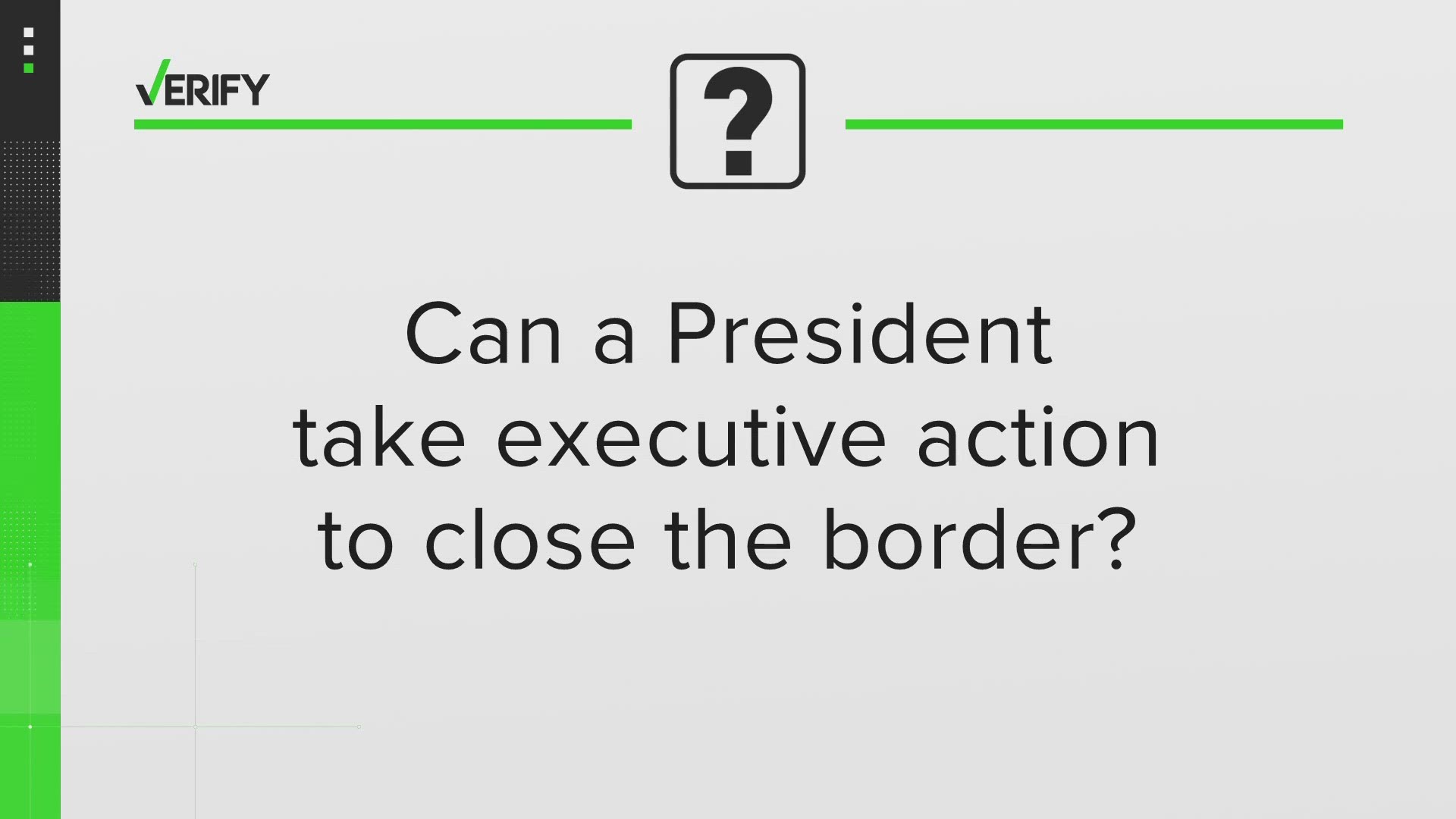WASHINGTON — As the Biden administration urges Congress to pass a bi-partisan immigration reform package this week that would reinforce the President’s authority to shut down immigration—former President Trump and many of his Republican allies are speaking out against the policy.
One argument: the president doesn’t need Congress to close the border.
THE QUESTION:
Can a President take executive action to close the border?
THE SOURCES:
- Center for Migration Studies
- National Archives
- Bipartisan Policy Center
- Dr. Casey Burgat, political science professor at George Washington University.
- Ambassador Tony Wayne, American University distinguished diplomat in residence
THE ANSWER:
Yes, but executive action typically faces more legal challenges and issues with implementation than policy change enacted through legislation.
WHAT WE FOUND:
As an issue, immigration is hot-button, emotionally charged, and involves a lot of different actors and organizations. In this current discourse, many on social media are pushing President Joe Biden to act with an executive order, without involving Congress.
“As with most things on social media, there is a kernel of truth to them, but it leaves a ton open to the actual applicability or the practicality of doing these things,” said Dr. Casey Burgat, political science professor at George Washington University.
The President has “fairly broad” authority over American borders, according to the National Immigration Law Center.
Former President Donald Trump exercised that authority with several actions, including ordering construction of a wall along the Mexico border. Since his first day in office, President Biden has taken even more executive action related to the border, including issuing enforcement guidance to the Department of Homeland Security and rolling back Trump-era policies.
“Theoretically [Biden] could reverse those back to the Trump mandates that he signed within his executive orders,” said Burgat. “That would assume that President Biden agreed with what former President Trump was doing, or that there wasn't a better path.”
Even facing increased calls to take action on the border, the Biden Administration is walking a fine political line.
"There are certain things President Biden could do and he may have to do that, may have to do some of those things, but it's not going to be the the border is totally closed kind of a situation," said Ambassador Tony Wayne, American University distinguished diplomat in residence. "And then of course, if he did that, he would really alienate a big chunk of his own supporters who are not fully comfortable yet with his."
Experts say policies built on presidential orders and rules have a much weaker foundation than those that go through the formal legislative process.
“It does not come with the permanence of a federal law, which can only come from one branch of government, and that's Congress,” said Burgat.
“You need to have a bipartisan agreement to get serious reform through,” said Wayne.
Immigration policies often face challenges – from states, humanitarian groups, and even other impacted countries.
“If you don't have a piece of legislation that justifies what you're doing, you could easily find yourself in a situation where individual judges are throwing out what you're trying to do,” said Wanye. “And that's, of course, what happened to Donald Trump in a number of the things he tried to do.”
“There are definitely ways, for example, that you could tighten up the definition of how you interview people for asylum and how tough you could be, but that is also vulnerable if it's not in law and clearly in law to be being challenged in court,” added Wayne. “And so I think it would be much, much better to do this in a way where there are a number of principles agreed upon.”
Something else to consider: a president’s precedent.
“Our presidents are constantly thinking about how will my opponents take this precedent that I'm setting, and how much further will they take that,” said Burgat.
In other words, President Biden has to consider if he successfully shuts down the border via executive action, he must consider what future administrations may do with that kind of power.

